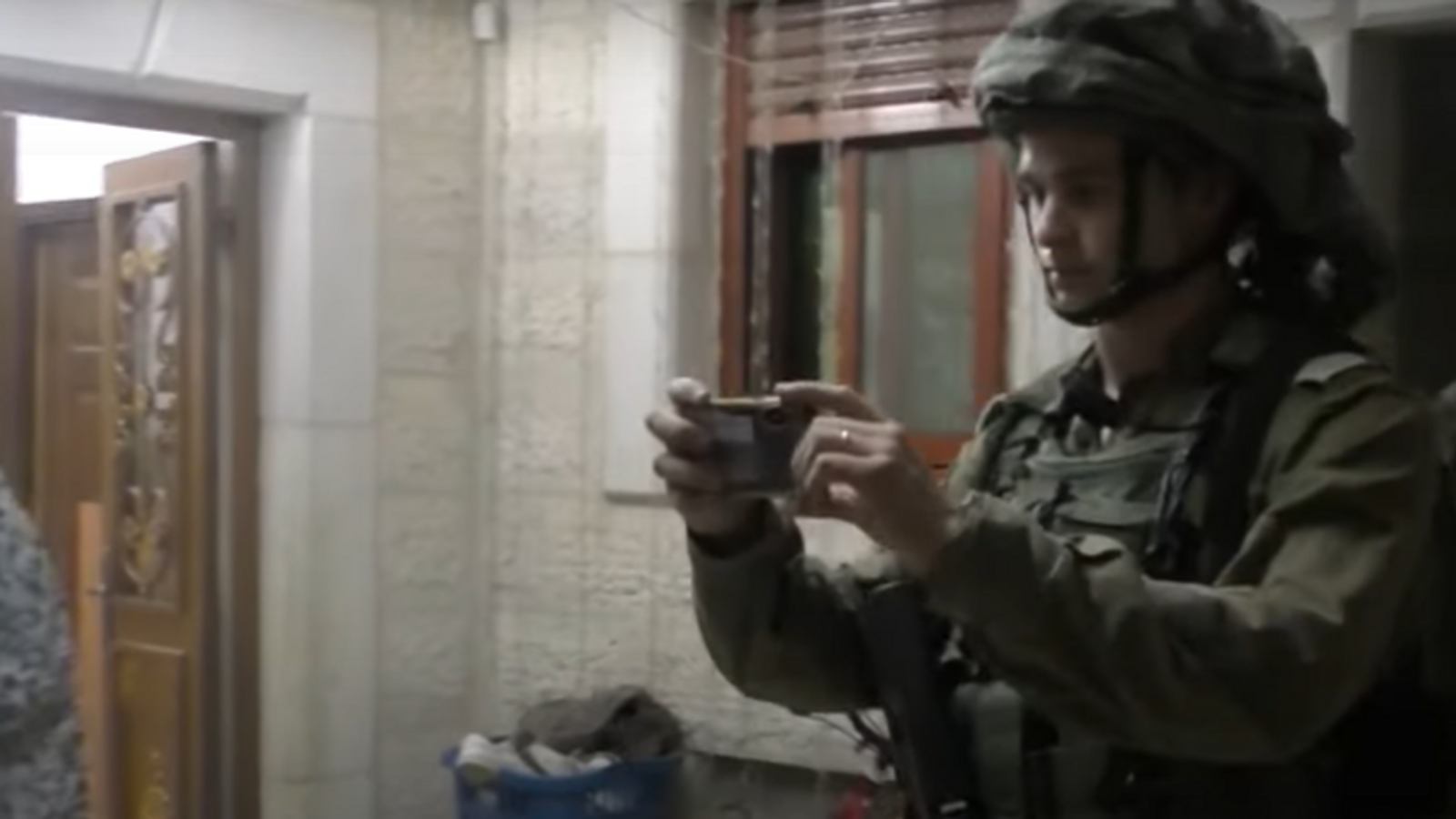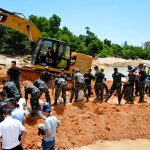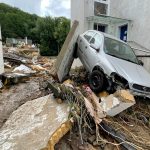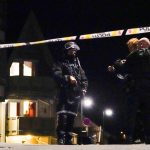A video has emerged showing an Israeli soldier lining up school-aged Palestinian children and photographing them in a night-time raid.
The footage, released on Wednesday by B’tselem – an Israeli group that documents human rights violations in occupied Palestinian territories – shows soldiers in a Palestinian home after dark.
The Palestinian adults are seen gathering up the young children from the home – some appearing to have been roused from their sleep.
The children are then ushered onto a balcony with a girl seen crying while a woman comforts her saying: “It’s just routine.”
The Israeli soldier then raises his phone to take a picture of the children and implores them to “say cheese”.
The incident caught on camera, which according to B’tselem and the military took place in the West Bank city of Hebron in September, was filmed by a B’tselem activist.
She is heard challenging the soldier, saying: “They are kids. You like when soldiers come and take pictures of your kids?”
Israel: Hollywood stars sign letter criticising labelling of Palestinian charities as terror organisations
COVID-19: Israel to begin vaccinating 1.2 million children aged 5 to 11 against coronavirus
Grandparents of six-year-old cable car crash survivor Eitan Biran given 15 days to return him to Italy
The video comes after a recent report by former Israeli soldiers and the Washington Post described an effort by Israeli soldiers to gather photos of Palestinians in the West Bank for use in surveillance technology that could assist the military to identify lawbreakers.
Critics say the initiative is an intimidation tactic and violates privacy rights of Palestinians.
B’tselem wrote in a statement: “It seems that for the military, all Palestinians, including school-age children, are potential offenders.
“At any time, it is permissible to wake them up at night, enter their homes and subject them to a line-up.”
The Israeli Defence Force said in a statement the soldiers arrived at the house in Hebron in September after Palestinians were seen throwing stones from it at a nearby settlement.
The soldiers entered the home to identify the stone-throwers, the IDF said.
“While the soldiers were in the suspects’ home, minors were photographed by the officer at the scene in order to identify the stone-throwers.”
The IDF said the officer’s actions “diverted from standard protocol” and that he has been “reprimanded for his wrongful actions”.
“Procedures will be reiterated to operational troops to prevent similar incidents and mistakes,” the IDF said.
A post on the Israeli military’s website from June, which refers to the surveillance technology in passing, says it was working to increase soldiers’ use of technology in the West Bank to help apprehend Palestinian outlaws.
“We have advanced technology, smart cameras with sophisticated analytics, sensors, that can alert in real time about a suspicious activity and the movement of a suspect,” battalion commander Uriel Malka is quoted as saying.
“The goal was that all combatants and commanders in the field will know how to operate these systems in the best way.”
In another development, international rights group Amnesty accused a British company JCB of allowing its diggers and excavators to end up in the hands of clients who use them to demolish Palestinian homes and construct settlements in the West Bank.
The group said J.C. Bamford Excavators Limited’s equipment is sold to an Israeli intermediary, who then sells it onward to customers that include the Israeli Defense Ministry.
Amnesty said use of a middleman doesn’t absolve it of ensuring its equipment is not used to violate human rights.
“JCB’s failure to conduct proper human rights due diligence on the end use of its products represents a failure to respect human rights,” the group said in its Thursday report.
The company is among more than 100 listed in a UN database of businesses that operate in Israel’s West Bank settlements. The company could not immediately be reached for comment on the Amnesty report.
The international community overwhelmingly considers the settlements, built on occupied land claimed by the Palestinians for a future state, to be illegal.
Israel rejects such claims, citing the land’s strategic and religious significance, and says the matter should be resolved in negotiations.






















